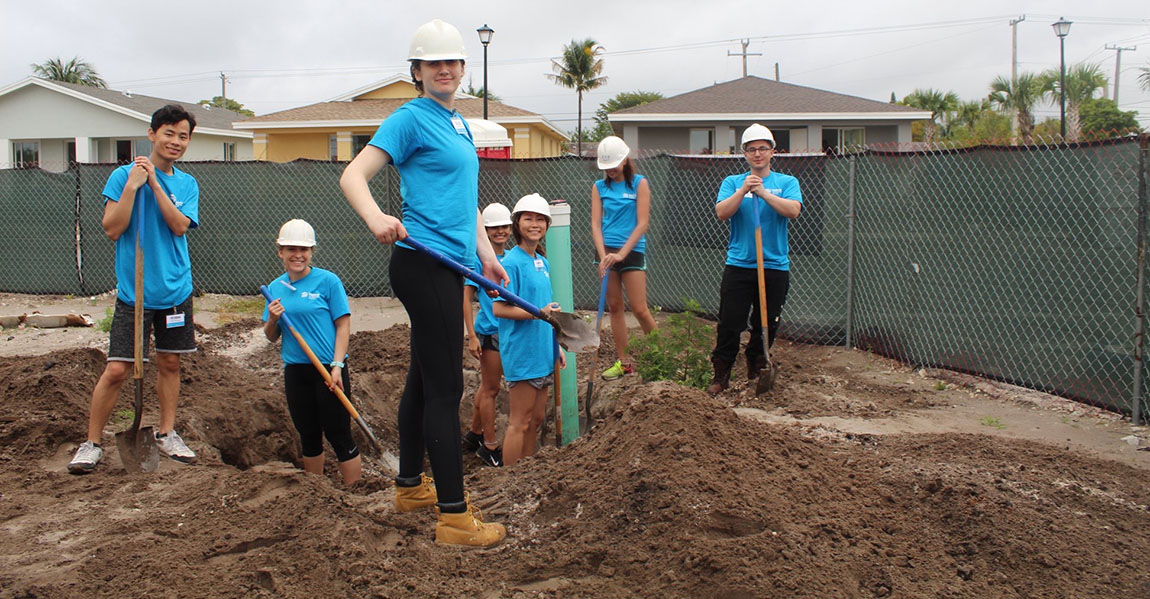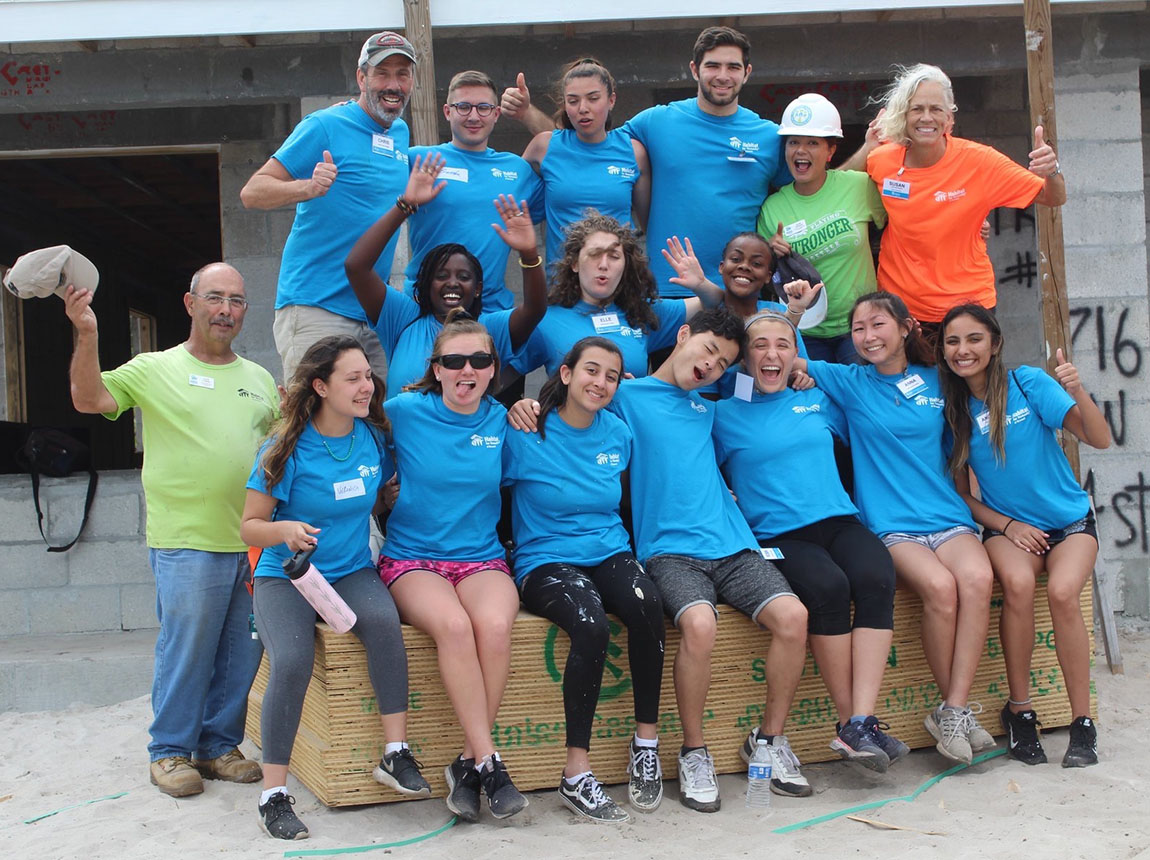Housing in America
One group of students took a class on housing policy before embarking on a Habitat for Humanity spring break together.By: Meghan Kita Thursday, March 26, 2020 02:51 PM
 Muhlenberg students on a Habitat for Humanity spring break work on a construction site. Photos courtesy Andrea Kayla Rodriguez ’21 and Veronica Pasko ’22.
Muhlenberg students on a Habitat for Humanity spring break work on a construction site. Photos courtesy Andrea Kayla Rodriguez ’21 and Veronica Pasko ’22.Early this month, twelve Muhlenberg students traveled to Fort Lauderdale, Florida, for a Habitat for Humanity alternative spring break. They brought with them something that not all Habitat volunteers have: an understanding of the policies that contribute to the lack of affordable housing that Habitat helps to remedy.
That’s because, prior to leaving, they took a half-credit integrative learning course called Housing in America with Professor of Political Science Chris Borick. The trip’s student leaders, Andrea Kayla Rodriguez ’21 and Veronica Pasko ’22, knew that a half-credit integrative learning course paired with an alternative spring break had been offered last year. They wanted a similar opportunity to go along with a Habitat trip and brainstormed professors whose expertise might make sense. Rodriguez had traveled with Borick before—on a short-term study abroad trip to Costa Rica—and thought he’d be a good fit. The students approached Borick last fall to see if he’d develop a course and accompany the group on the trip.
“We told him what we were interested in and what we wanted to get out of the course,” Rodriguez says. “We talked to him more about what Habitat for Humanity was and how they work. From then on, he established a course. He let us read through his entire course plan. If there was anything we thought was left out, he let us edit it. We were really happy with what he came up with.”
What he came up with was an American Studies course that began with a look at the history of housing policies in America. For example, they spent a whole class on redlining: mortgage discrimination on the basis of race that was outlawed by the Fair Housing Act in 1968.
“African Americans have less than 10 percent of the accumulated wealth of white Americans,” Borick says. “Where do most people accumulate their wealth? In their homes. Because of the history of things like redlining, African Americans have been unable to accumulate wealth and pass it onto future generations.”
The class worked its way forward in time to discuss more contemporary challenges in affordable housing, such as the subprime mortgage crisis and urban gentrification. By the time the group arrived in Florida, they had better context for the work they were about to do—mostly painting, some trench digging—and a better understanding of why their work was important.
It helped, too, that the group was able to meet some of the Habitat families for dinner one night. Says Borick, “It was neat to put a face on the policy and to tie the work to the families that’ll be living in those communities.”

